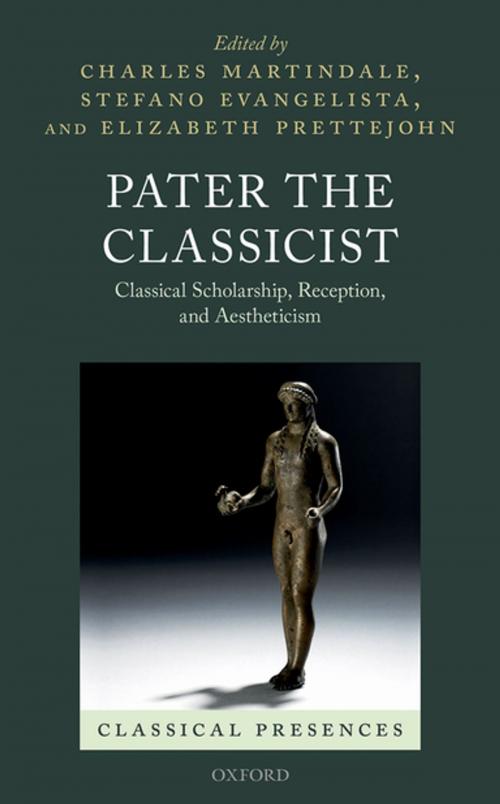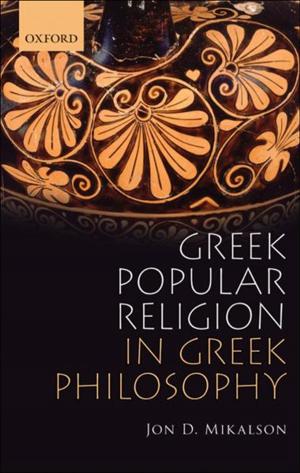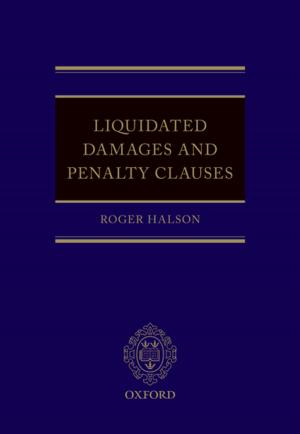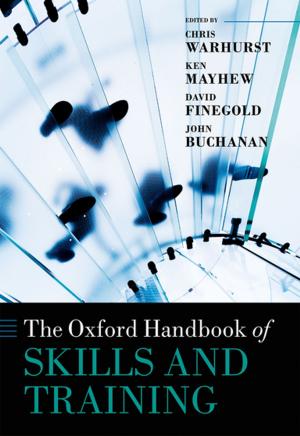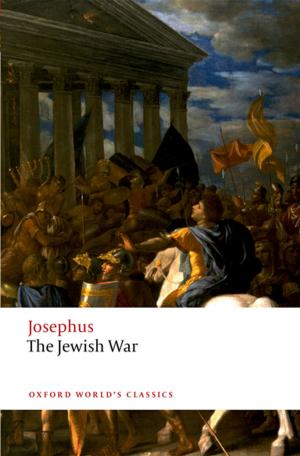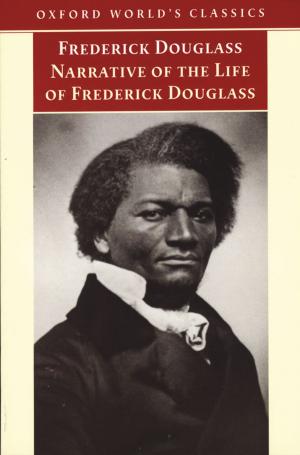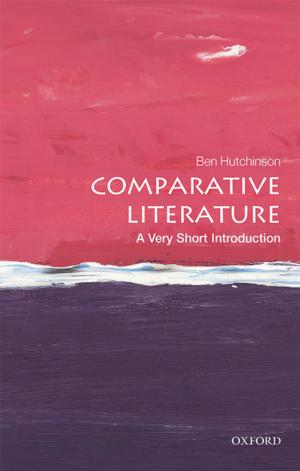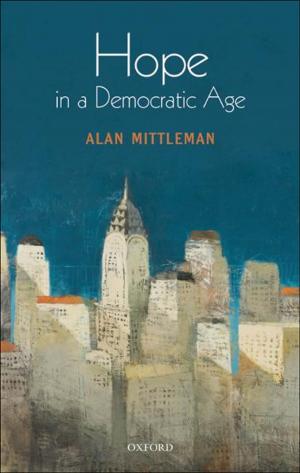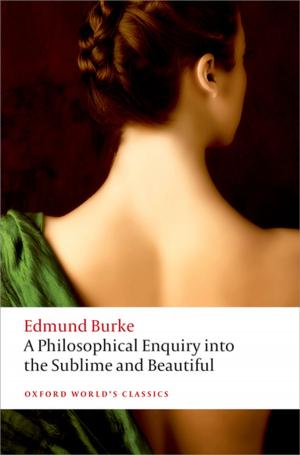Pater the Classicist
Classical Scholarship, Reception, and Aestheticism
Nonfiction, Art & Architecture, General Art, Fiction & Literature, Literary Theory & Criticism, History| Author: | ISBN: | 9780191091346 | |
| Publisher: | OUP Oxford | Publication: | March 2, 2017 |
| Imprint: | OUP Oxford | Language: | English |
| Author: | |
| ISBN: | 9780191091346 |
| Publisher: | OUP Oxford |
| Publication: | March 2, 2017 |
| Imprint: | OUP Oxford |
| Language: | English |
Pater the Classicist is the first book to address in detail Walter Pater's important contribution to the study of classical antiquity. Widely considered our greatest aesthetic critic and now best known as a precursor to modernist writers and post-modernist thinkers of the twentieth century, Pater was also a classicist by profession who taught at the University of Oxford. He wrote extensively about Greek art and philosophy, but also authored an influential historical novel set in ancient Rome, Marius the Epicurean, and a variety of short stories depicting the survival of classical culture in later ages. These superficially diverging interests actually went closely hand-in-hand: it can plausibly be asserted that it is the classical tradition in its broadest sense, including the question of how to understand its workings and temporalities, which forms Pater's principal subject as a writer. Although he initially approached antiquity obliquely, through the Italian Renaissance, for example, or the poetry of William Morris, later in his career he wrote more, and more directly, about the ancient world, and particularly about Greece, his first love. The essays in this collection cover all his major works and reveal a many-sided and inspirational figure, whose achievements helped to reinvigorate the classical studies that were the basis of the English educational system of the nineteenth century, and whose conception of Classics as cross-disciplinary and outward-looking can be a model to scholars and students today. They discuss his classicism generally, his fiction set in classical antiquity, his writings on Greek art and culture, and those on ancient philosophy, and in doing so they also illuminate Pater's position within his Victorian context, among figures such as J. A. Symonds, Henry Nettleship, Vernon Lee, and Jane Harrison, as well as his place in the study and reception of Classics today.
Pater the Classicist is the first book to address in detail Walter Pater's important contribution to the study of classical antiquity. Widely considered our greatest aesthetic critic and now best known as a precursor to modernist writers and post-modernist thinkers of the twentieth century, Pater was also a classicist by profession who taught at the University of Oxford. He wrote extensively about Greek art and philosophy, but also authored an influential historical novel set in ancient Rome, Marius the Epicurean, and a variety of short stories depicting the survival of classical culture in later ages. These superficially diverging interests actually went closely hand-in-hand: it can plausibly be asserted that it is the classical tradition in its broadest sense, including the question of how to understand its workings and temporalities, which forms Pater's principal subject as a writer. Although he initially approached antiquity obliquely, through the Italian Renaissance, for example, or the poetry of William Morris, later in his career he wrote more, and more directly, about the ancient world, and particularly about Greece, his first love. The essays in this collection cover all his major works and reveal a many-sided and inspirational figure, whose achievements helped to reinvigorate the classical studies that were the basis of the English educational system of the nineteenth century, and whose conception of Classics as cross-disciplinary and outward-looking can be a model to scholars and students today. They discuss his classicism generally, his fiction set in classical antiquity, his writings on Greek art and culture, and those on ancient philosophy, and in doing so they also illuminate Pater's position within his Victorian context, among figures such as J. A. Symonds, Henry Nettleship, Vernon Lee, and Jane Harrison, as well as his place in the study and reception of Classics today.
